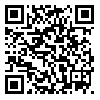Volume 28, Issue 2 (2021)
EIJH 2021, 28(2): 58-68 |
Back to browse issues page
Download citation:
BibTeX | RIS | EndNote | Medlars | ProCite | Reference Manager | RefWorks
Send citation to:



BibTeX | RIS | EndNote | Medlars | ProCite | Reference Manager | RefWorks
Send citation to:
Falahati L. Knowledge-based Economy as an Opportunity to Closing the Gender Gap. EIJH 2021; 28 (2) :58-68
URL: http://eijh.modares.ac.ir/article-27-52426-en.html
URL: http://eijh.modares.ac.ir/article-27-52426-en.html
Assistant Professor of Gender and Development, Department of Women’s Studies, Institute for Social and Cultural Studies, Ministry of Science, Research and Technology, Tehran, Iran , Falahati@iscs.ac.ir
Abstract: (1843 Views)
In the last three decades, along with the development of knowledge-based economy, the development of businesses related to this field has also taken a growing trend and the concept of entrepreneurship has found an important role in the growing economy. Knowledge-based economics as an emerging field and with the focus on information technology and communication technology grew significantly. According to the International Telecommunication Union (2016), ICT-related businesses will account for 95% of all global companies, as well as one-third of all global formal-related businesses in the next decade. The purpose of the present study is to explore the contribution of women in the Persian Gulf region in the field of science, technology and knowledge-based economy using the documentary research method. The research results revealed that in the said field, there is an extensive opportunity to reduce the economic gender gap. Comparing the trend of women's participation in this field shows that the progress of women has been smooth in some countries while in some others, more development is needed. Suggestions have been made for the development of women's technical and professional knowledge, balancing between work and life, and implementing supportive policies.
Article Type: Original Research |
Subject:
History
Received: 2020/01/12 | Accepted: 2020/07/23 | Published: 2021/04/1
Received: 2020/01/12 | Accepted: 2020/07/23 | Published: 2021/04/1
References
1. [1] Berryman, J., (1983). 'Small Business Failure and Survey of the Literature'. European Small Business Journal, 1(4), 47-59. [DOI:10.1177/026465608300100404]
2. [2] Bowker, G., & Star, S. L., (1999). Sorting Things out. Classification and its Consequences. MIT press. [DOI:10.7551/mitpress/6352.001.0001]
3. [3] Bray, F. (2013). 'Gender and Technology. Women, Science, and Technology: A Reader in Feminist Science Studies', Annual Review Anthropology. 36:37-53. [DOI:10.1146/annurev.anthro.36.081406.094328]
4. [4] Cakebread, C., (2017). 'Apple Reiterated its Commitment to Diversity and Inclusion, but it made Little Progress in the Last Year and is still Predominantly White and Male'. Business Insider (November 9, 2017)
5. [5] Cowan, R. S., (1983). More Work for Mother. Basic Books.
6. [6] Dennehy, T. & Dasgupta, N., (2017). 'Female Peer Mentors Early in College Increase Women's Positive Academic Experiences and Retention in Engineering'. PNAS, April 14, 2017. [DOI:10.1073/pnas.1613117114]
7. [7] Elamkhah, A. & Kashani Shahedani, M. (2015). 'A Review of Knowledge-Based Economics Literature: From Formation to Practice', Technology Development Quarterly, 11(44). Pp. 17-27.
8. [8] Eurostat, "Tertiary Education Statistics," Eurostat: Statistics Explained (2017).
9. [9] Falahati, L., (2015). 'The Fourth Industrial Revolution and the Employment Challenge for Graduate Women', Research Week Proceedings, Research Institute for Social and Cultural Studies, Tehran.
10. [10] Faulkner, W., (2001). 'The Technology Question in Feminism: A View from Feminist Technology Studies'. Paper Presented at the Women's Studies International Forum. [DOI:10.1016/S0277-5395(00)00166-7]
11. [11] Gee, B. & Peck, D., (2017). The Illusion of Asian Success: Scant Progress for Minorities in Cracking the Glass Ceiling from 2007-2015.
12. [12] Global Gender Gap Report (2018). World Economic Forum.
13. [13] Google (2016). EEO-1 Report, 2016
14. [14] Guynn, J., (2015). Exclusive: Google Raising Stakes on Diversity. USA Today (May 5, 2015).
15. [15] Grusky, D. & Hill, J., (2017). Inequality in the 21st Century. Avalon Publishing. [DOI:10.4324/9780429499821]
16. [16] Harding, S. G. (1986). The Science Question in Feminism: Cornell University Press.
17. [17] Hewlett, S. A., Luce, C. B., Servon, L. J., Sherbin, L., Shiller, P., Sosnovich, E., & Sumberg, K., (2008). The Athena Factor: Reversing the Brain Drain in Science, Engineering, and Technology. Harvard Business Review Research Report, 10094, 1-100.
18. [18] ITU (2016). Global ICT Development Index
19. [19] Lerman, N. E., Mohun, A. P., & Oldenziel, R., (1997). 'The Shoulders We Stand on and the View from here: Historiography and Directions for Research'. Technology and Culture, 9-30. [DOI:10.2307/3106782]
20. [20] Lohan, M., (2000). 'Constructive Tensions in Feminist Technology Studies'. Social Studies of Science, 30(6), 895-916. [DOI:10.1177/030631200030006003]
21. [21] Pfaffenberger, B., (1992). 'Social Anthropology of Technology'. Annual Review of Anthropology, 491-516. [DOI:10.1146/annurev.an.21.100192.002423]
22. [22] Price, J., (2010). 'The Effect of Instructor Race and Gender on Student Persistence in STEM Fields'. Economics of Education Review, 29(6), 901-910. [DOI:10.1016/j.econedurev.2010.07.009]
23. [23] Richter., F., (2018). The Tech World Is Still a Man's World, Statista.
24. [24] Schwab, K., (2017). 'The Fourth Industrial Revolution'. Currency.
25. [25] Sediqh, G., (2005). Knowledge-Based Economics: A New Approach to Economics, Tadbir Eghtesad Research Institute, Tehran, First Edition,
26. [26] Stanley, A., (1995). Mothers and Daughters of Invention: Notes for a Revised History of Technology: Rutgers University Press.
27. [27] Statistics Canada, (2017). 'Postsecondary Enrolments by Institution Type, Sex, and Field of Study.'
28. [28] Suzanchi Kashani, E., (2010). Approaches and Principles of Knowledge-Based Economy: Expediency Discernment Assembly, Strategic Research Center, Tehran, First Edition
29. [29] UNESCO (2016). World Social Science Report 2016, Challenging Inequalities: Pathways to a Just World.
30. [30] UNESCO Institute for Statistics, July 2015 (presentation by Mr. Alessandro Bello during UN-Wide Capacity Building Workshop on Innovation Policies for SDGs in the Arab Region (Amman, 15-19 April 2018).
31. [31] UNESCO Institute for Statistics, (2019), Women in Science,FS/2019/SCI/55 http://uis.unesco.org/sites/default/files/documents/fs55-women-in-science-2019-en.pdf
32. [32] Vice President for Science and Technology, (2017-2018). Report of the Working Group on Evaluation of Knowledge-Based Companies
33. [33] World Bank Open Data (2020), https://data.worldbank.org/
34. [34] Wajcman, J., (2004). Techno Feminism. Polity, Cambridge.
35. [35] Wajcman, J., (2009). 'Feminist Theories of Technology'. Cambridge Journal of Economics, 34(1), 143-152. [DOI:10.1093/cje/ben057]
Send email to the article author
| Rights and permissions | |
 |
This work is licensed under a Creative Commons Attribution-NonCommercial 4.0 International License. |








